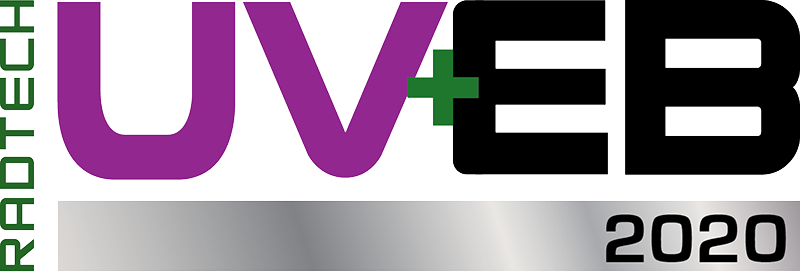Conference Program
Short Courses
UV/EB Professional Short Course (Undergraduate-Level)
Sunday, March 8, 2020, 1:00 PM – 5:00 PM
Faculty: Dr. Mike Idacavage, Colorado Photopolymer Solutions, Dr. Neil Cramer, Colorado Photopolymer Solutions/University of Colorado
WHO SHOULD ATTEND?
Attendees for this course should be UV/EB professionals who are employed in the polymer or coatings industry but who have not had an extensive college-level course in polymer chemistry or photo polymerization. As a minimum, attendees should have had an undergraduate course in general chemistry and at least one semester of organic chemistry.
COURSE DESCRIPTION
This half day course is designed to acquaint UV/EB chemists and other technical professionals with the fundamentals of polymer chemistry at an undergraduate level. It will involve an overview of step-growth and chain-growth polymerization processes with special emphasis on the latter. Specifically, it will cover the chemistry of free-radical and cationic polymerization processes including kinetic and thermodynamic aspects of the subject. The session will include a detailed discussion of the chemistry of the photo initiation process and will highlight a variety of polymer characterization techniques for UV/EB polymers. In addition, formulation strategies for UV and EB curing will be discussed along with brief discussions on a wide range of applications.
FEES
$295 – member
$395 – non-member
Free – student
Advanced Photopolymerization Topics (Graduate level)
Sunday, March 8, 2020, 1:00 PM – 5:00 PM
Faculty: Dr. Susan Bailey, Michelman; Dr Molly Hladik, Michelman
WHO SHOULD ATTEND?
Attendees for this course may have extensive polymer or chemistry backgrounds who looking for an introduction into radiation curing. Alternatively UV/EB professionals that have experience in the field but are looking to gain new depth would also benefit.
COURSE DESCRIPTION
This course will begin with a brief review of photochemical and polymerization processes in UV/EB chemistry. From this common language, we will explore the implications of pigments, radiation sources, and environmental conditions on the cure reaction and performance of the final product. By focusing on the reactions and structure-property relationships, ways to understand and control the final product properties will be discussed. In addition to photo-initiated radical polymer chemistry, cationic, thiol-ene and hybrid chemistries will be used in examples. The course will cover implications for developing applications in low migration materials as well as requirements for inkjet, 3D printing and LED curing.
FEES
$390 – member
$590 – non-member
$250 – student
UV LED Bootcamp
Instructor: Jennifer Heathcote, Eminence UV, LLC
COURSE DESCRIPTION
UV LED output has many nuances that dictate a different approach to both formulating UV curing chemistry and sourcing curing systems. This introductory course explains the basics of photopolymerization; the roles of peak irradiance (Watts/cm2), energy density (Joules/cm2), and spectral wavelength (nm); and the fundamental differences in UV output from conventional mercury lamps and UV LED curing systems. In addition, this course covers UV LED applications, integration, market evolution, and proper lab set-up. End users, OEMs, integrators, formulators, and others in the supply chain on both the technical and commercial sides of business should benefit from the course material.
FEES
$250– member
$350– non-member
$100– student
Design of Experiments for UV/EB Scientists and Engineers
Pt 2 – Tuesday, March 10, 12:00 PM – 2:30 PM
FACULTY: Dr. Allan Guymon, University of Iowa
WHO SHOULD ATTEND?
This course will provide the foundation and motivation for using Design of Experiments to improve and optimize UV/EB curing processes and formulations. Students attending the course do not need previous experience in Design of Experiments or statistics. The course is appropriate for individuals with backgrounds ranging from technicians to Ph.D. scientists and engineers.
COURSE DESCRIPTION
Design of Experiments (DOE) is a powerful technique that allows the maximum amount of information to be obtained by performing the minimum number of experiments. For those in production, product design, or quality control, knowledge of DOE can dramatically enhance effectiveness in solving problems and optimizing systems. Most experiments not based on DOE concepts are two-dimensional, i.e. one variable is changed while a response is measured. DOE, on the other hand, varies all of the important variables simultaneously and systematically, thereby examining the response(s) in many dimensions.
Even with the great potential of DOE, few are familiar with its concepts. The goal of this course is to provide the basic tools needed for DOE implementation in the UV/EB industry. While DOE is based on statistical principles, primary emphasis will be placed on practical aspects in using and applying DOE techniques and on the motivation behind using DOE. Specific topics that will be addressed include:
- Background and History of DOE
- Steps in a DOE
- DOE Terminology
- Screening Designs
- Model Building Designs
- Mixture (Formulation) Designs
CEU CREDIT
Attendees taking this course will receive 0.6 CEU credits from the University of Iowa. CEU credit forms will be handed out to students the day of the course
FEES
$475 – member
$650 – non member
$325 – student
Lunch & Learn: Introduction to the Basics of UV Cationic Curing
Monday, March 9, 2020 – 12:15 PM – 1:15 PM
Faculty: Dr. Mike J. Idacavage, Radical Curing LLC
COURSE DESCRIPTION
The Energy Curable industry has grown tremendously since its beginnings in the early 1970s. The use of light or low energy electrons as the energy source for curing coatings is very attractive from productivity, performance and sustainability points of view. To date, most of the focus has been on free radical cure. However, the use of cationic cure brings several unique and highly desirable advantages when it comes to selecting the chemistry for UV curing. Low shrinkage, improved adhesion, lack of oxygen inhibition and the ability to post cure are all important attributes of cationic curing. This “Lunch & Learn” presentation will present an introduction to UV cationic curing. In addition to the basic chemistry, an overview of key materials, formulating strategies and hybrid systems will be covered.
FEES
$95– member
$145– non-member

